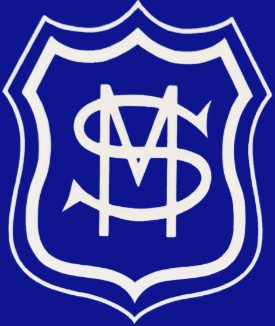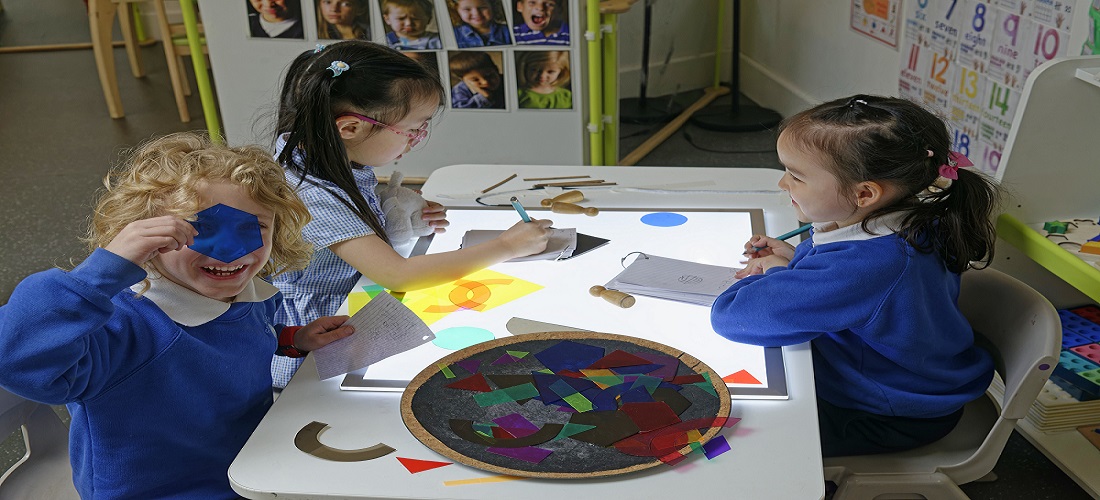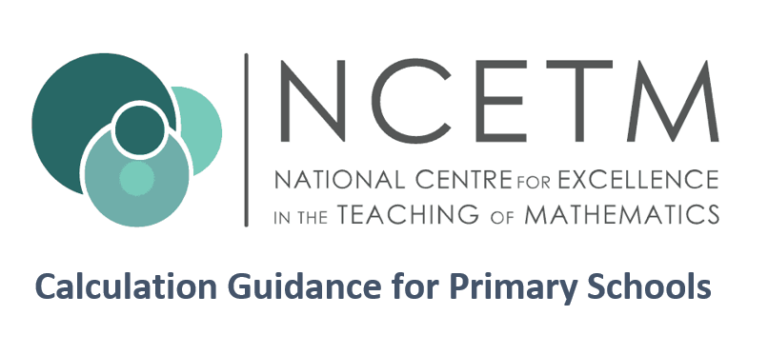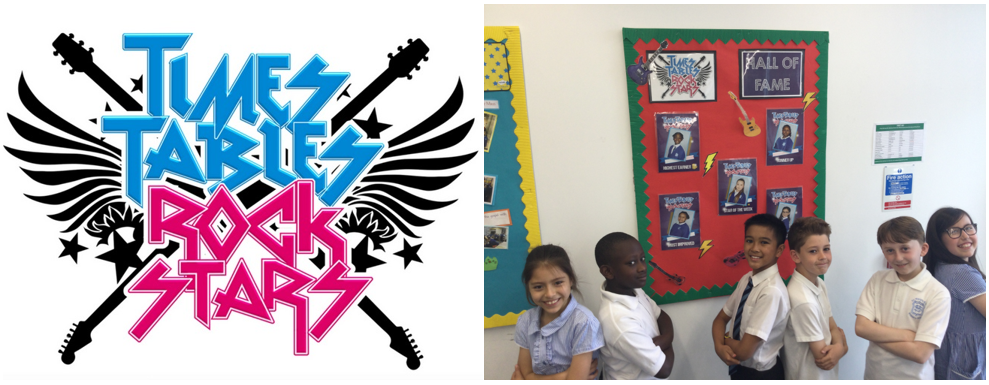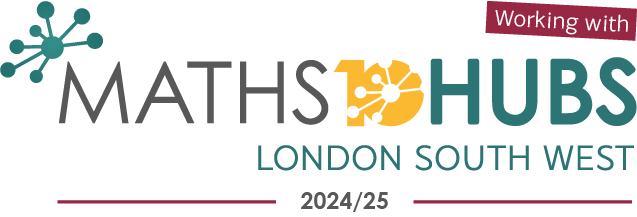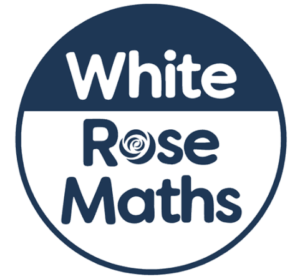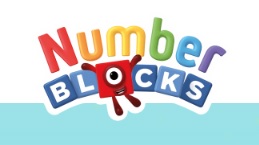Maths
At St Mary’s, we believe that through high quality teaching and learning in mathematics, all children can achieve and make progress no matter what their starting point. All pupils are encouraged to believe that if they work hard at maths they can succeed, and we aim to provide children with opportunities to learn and love maths every day.
This is done through a mastery approach, such that children are taught in a way that builds deep conceptual understanding of their learning by taking small steps and making connections to prior learning.
Each lesson will focus on a small step within the curriculum in depth, with lessons carefully sequenced together as part of a journey towards a greater depth of understanding. The aim is that all children in the class will move broadly at the same pace, and that no child will be left behind.
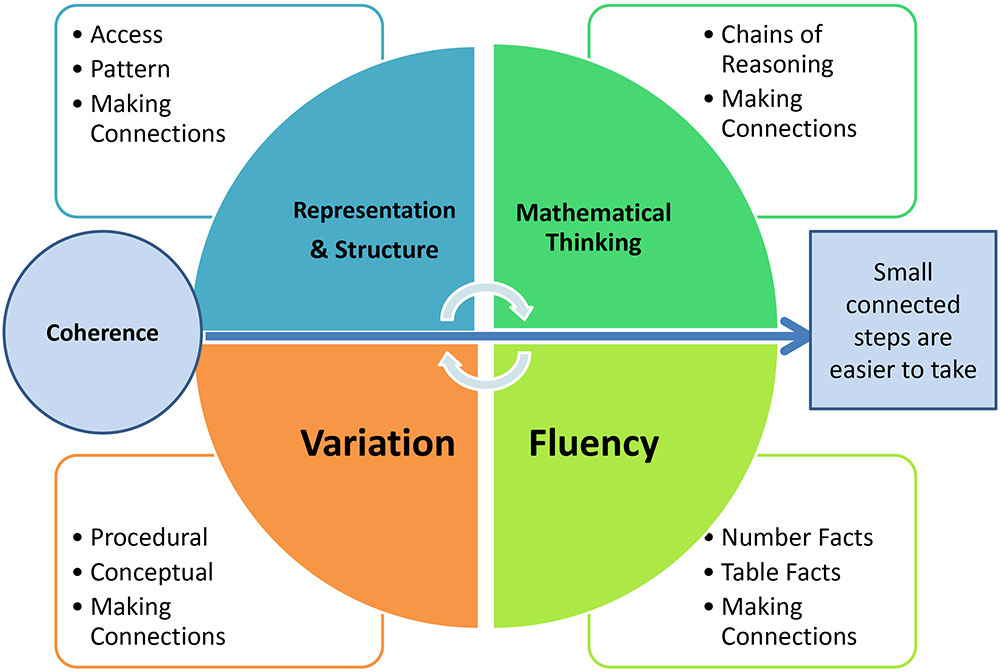
For Five Big Ideas in Teaching for Mastery and more information please click on the image below.
Planning
At St Mary’s, our teachers use a range of resources to support with our planning and delivery of high-quality maths lessons.
We use White Rose Maths schemes of learning which are in line with our mastery approach to teaching maths and follow the National Curriculum programmes of study, but supplement this with other high quality resources including the NCETM materials and Singapore maths (Maths No Problem) textbooks.
EYFS
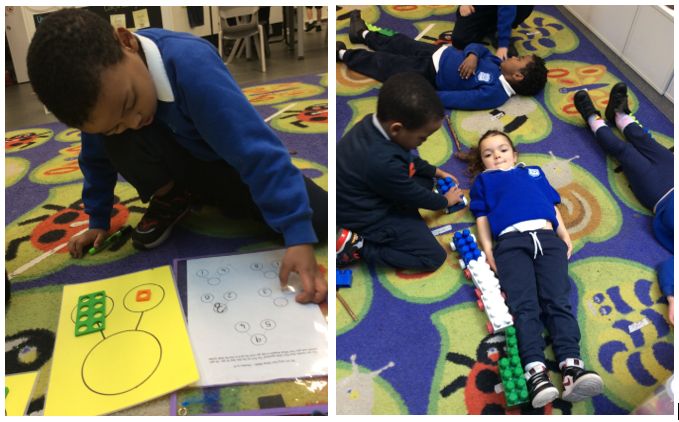
In the Early Years we keep learning as play based and practical as possible. Children have opportunities to use and explore a variety of manipulatives, counting and measurement resources both independently and during teacher led activities.
Direct teaching of mathematics will usually be carried out daily, either as a whole class or in small groups.
St Mary’s staff use the Development Matters Guidance published by the government to inform our medium term planning and curriculum and carry out formative and summative assessment to ensure progress over the year. Evidence of the children’s learning is collected in the form of photos, observations and some book work.
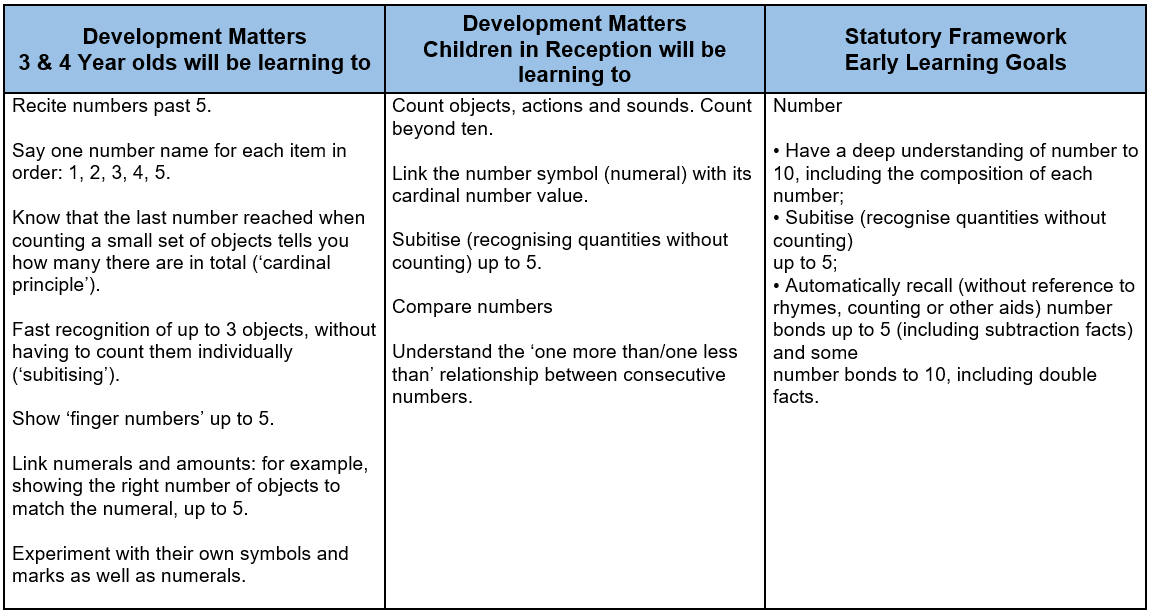
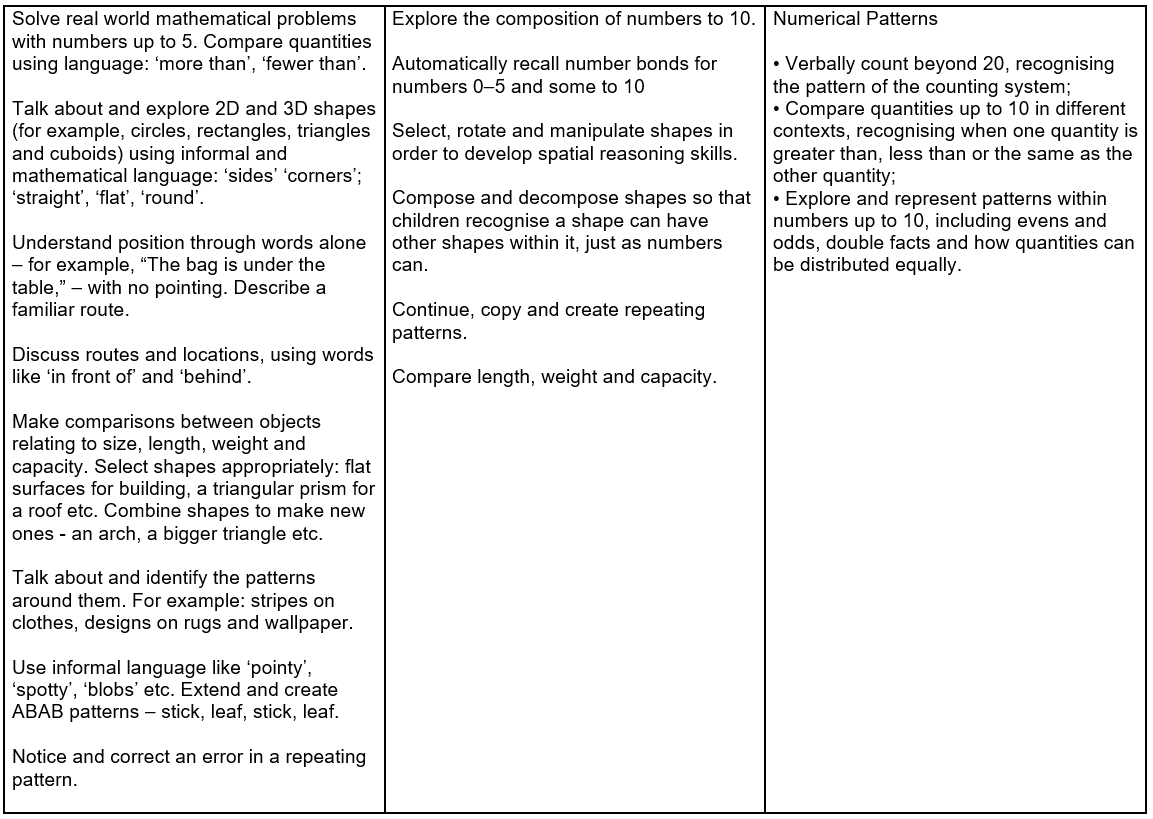

Maths Curriculum Road Map Year 1 – Year 6
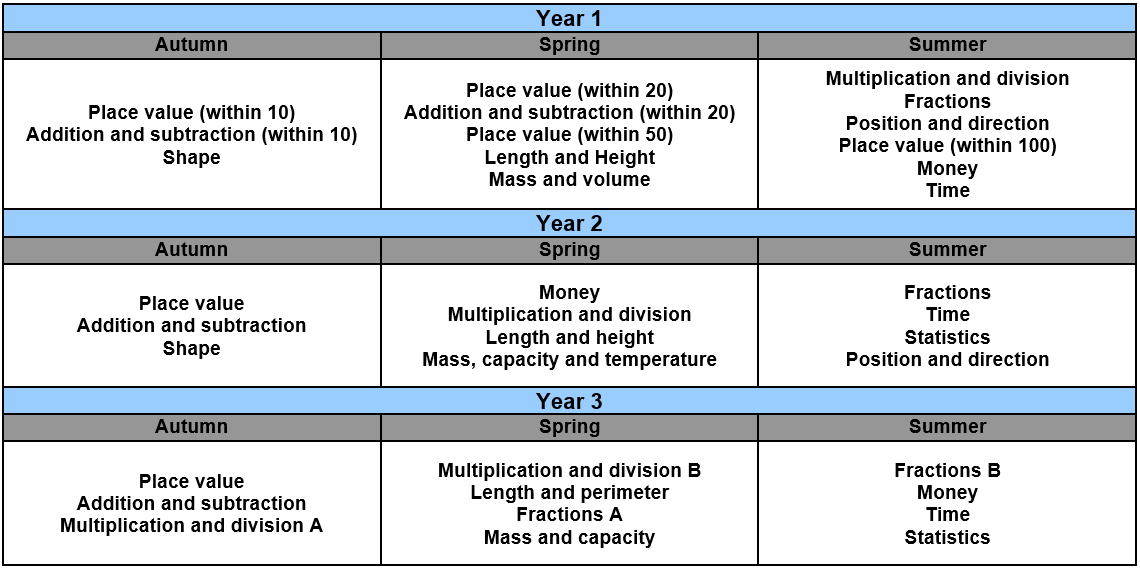
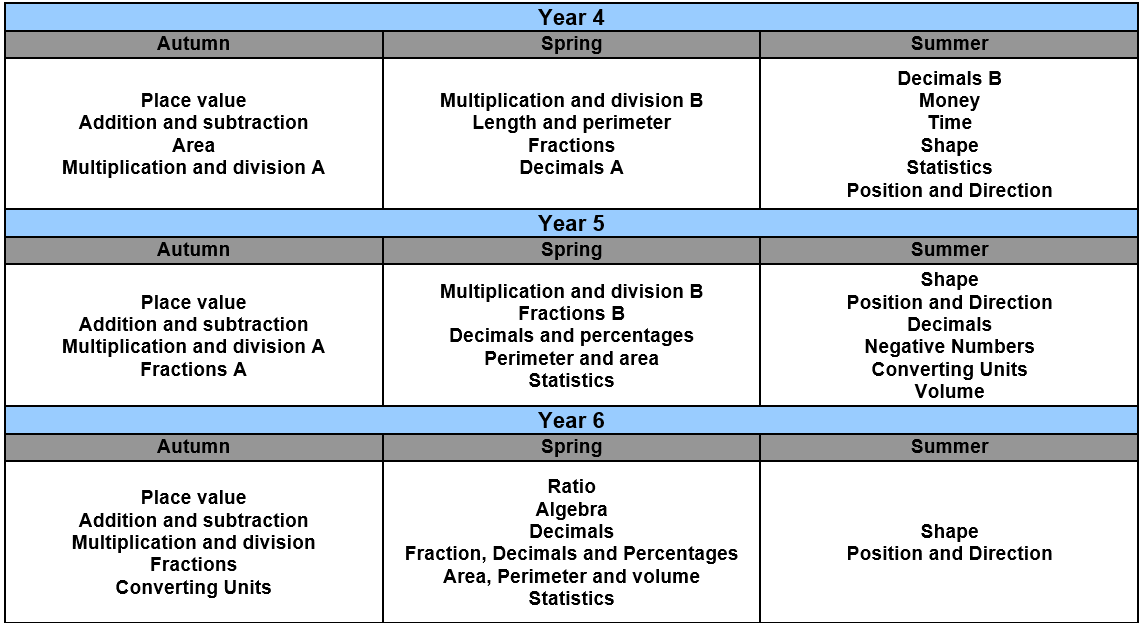
Please click here for the National Curriculum Ready To Progress March 2023.
Please click here for our Mathematics Policy 2023.
Times Tables
Mastering the times tables is a crucial part of the learning journey our pupils experience as they go through primary school, as it links very closely with other areas of the curriculum including division and fractions. The DfE have introduced a new statutory assessment for children at the end of Year 4.
Please click here for our Year 4 Multiplication Tables Check.
The Expected Times Tables Progression from Year 1 to Year 6
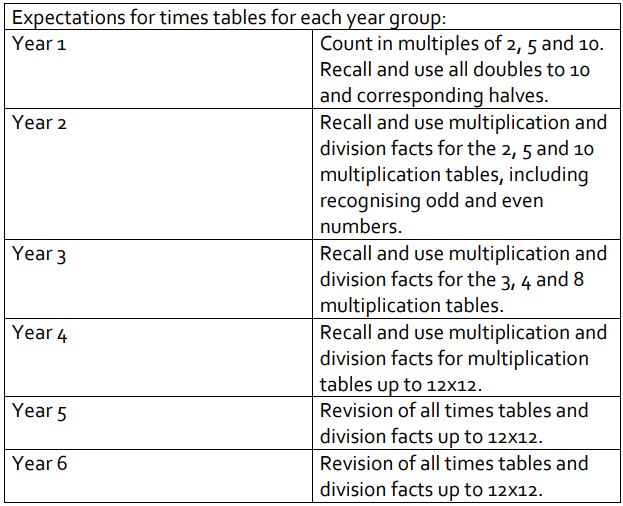
Children who have mastered their times tables up to 12×12 will join the 144 Club and receive a special badge to celebrate their achievement.
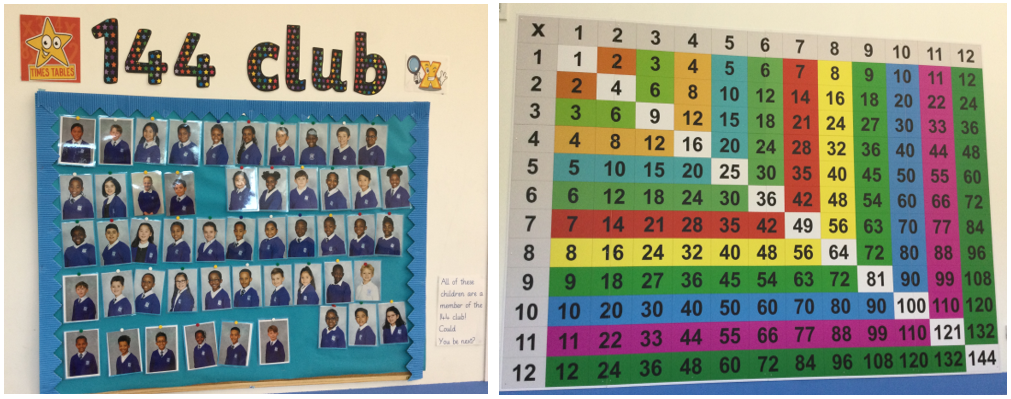
For more information on TTRS please click on the image below.
To support the learning and recall of times tables, we subscribe to Times Tables Rockstars which is an exciting and engaging online platform designed to support and motivate children on their journey to mastering their times tables. Children in Years 2-6 have their own individual logins where they can access the platform, including personalised training schedules set by the class teacher where appropriate.
Deepening Children’s Understanding of Maths

One key way in which children’s understanding of a concept can be enhanced is through the use of concrete resources. Through the use of Dienes, place value counters, and a range of other manipulatives, and with accompanying pictorial representations, children can progress more securely towards understanding the abstract form of a concept.
For How Calculations are taught at St Mary’s Primary School, please click Maths Calculation Guidance.
Vocabulary
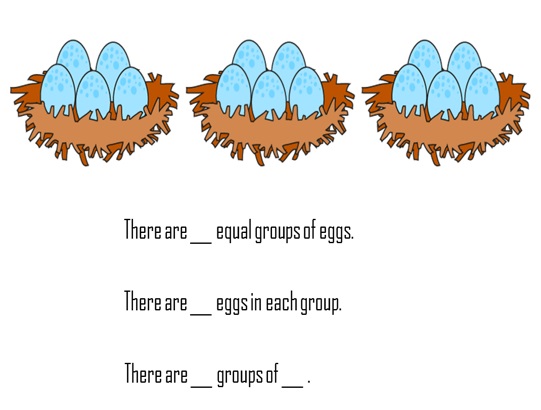
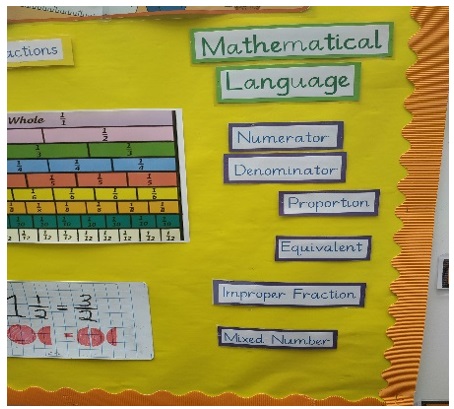
Language is a key element of teaching maths with a mastery approach and our teachers will use and draw attention to the correct mathematical vocabulary in our lessons when explaining a concept. Children are encouraged to respond in full sentences using the correct vocabulary at every opportunity – this is supported by the use of stem sentences, and class displays include the key mathematical language for the current topic.
Independent Tasks
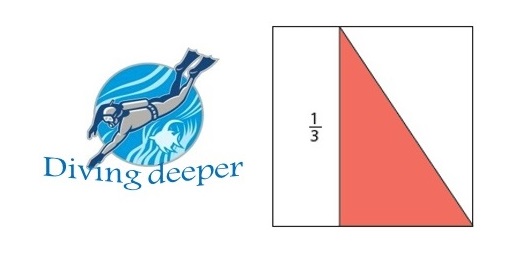
Independent tasks follow a layered approach, where a greater depth of understanding is required as children progress through each “layer”. Pupils will have regular opportunities to develop their mathematical fluency, while also using their reasoning skills to solve problems in maths. Pupils who grasp concepts quickly are challenged through “Diving Deeper” tasks, rather than acceleration through new content. These tasks require a greater level of reasoning and problem-solving skills, and promote mathematical language and discussion.
Assessment
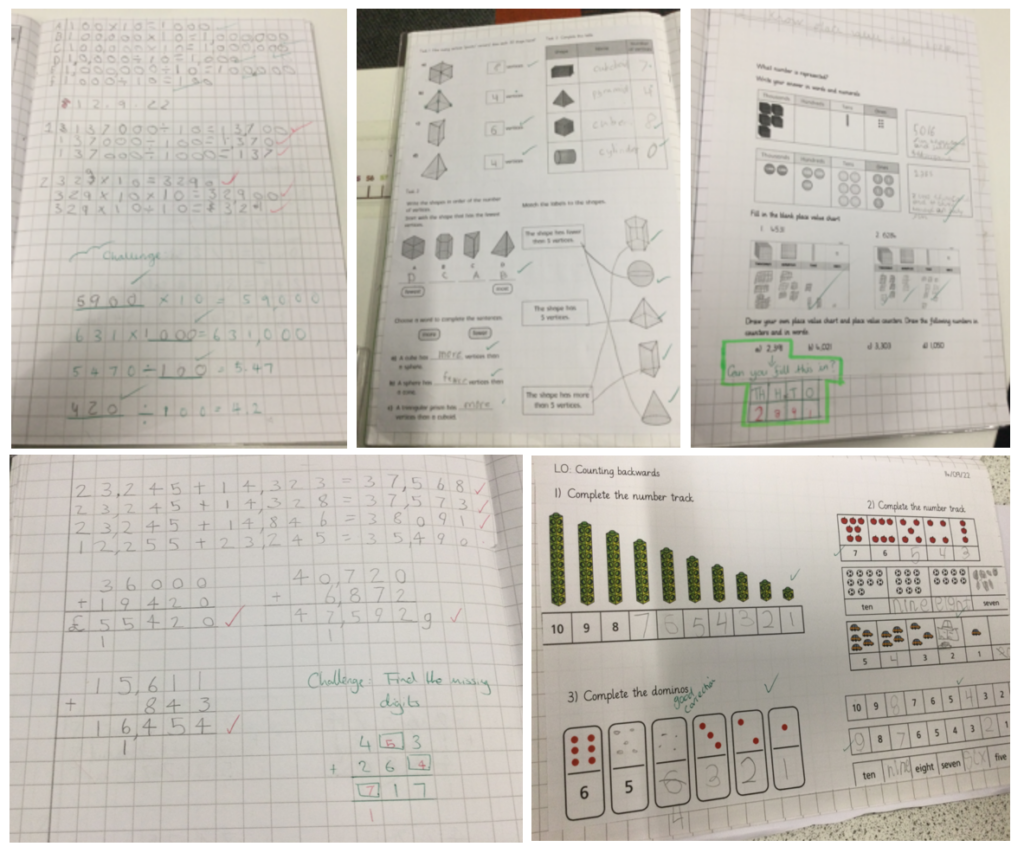
At the end of key stages 1 and 2, children will sit their statutory assessments (SATs) in maths, both of which include a significant arithmetic focus. In order to prepare children for these end of key stage assessments, arithmetic is central to the learning we do in maths. To achieve mastery of any concept, secure arithmetic is key and will enable our learners to access the higher level problems.
Children in years 2 and 6 will sit practice SATs papers (arithmetic and reasoning) each half term in order to prepare them for the end of year assessments.
Children in years 3-5 are assessed formally through NFER assessments which follow a similar structure to the end of KS2 SATs.
In addition to these formal assessments, teachers will be constantly assessing pupils’ progress in each lesson, and will move pupils’ learning forward through formative feedback (both written and verbal)
Online Platform to Support Maths
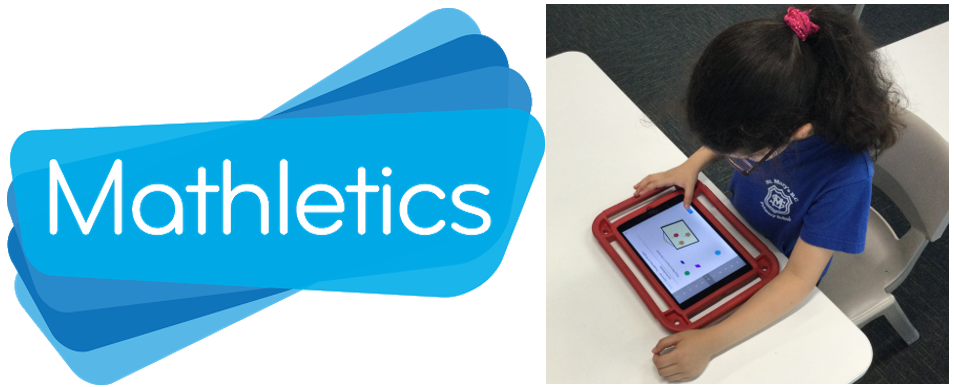
St Mary’s also subscribes to Mathletics, with every child in Reception to Year 6 having their own individual login. Teachers will regularly assign tasks related to the recent learning done in class – children are encouraged to use these resources at home when possible to consolidate their understanding of what they’ve been learning at school.
